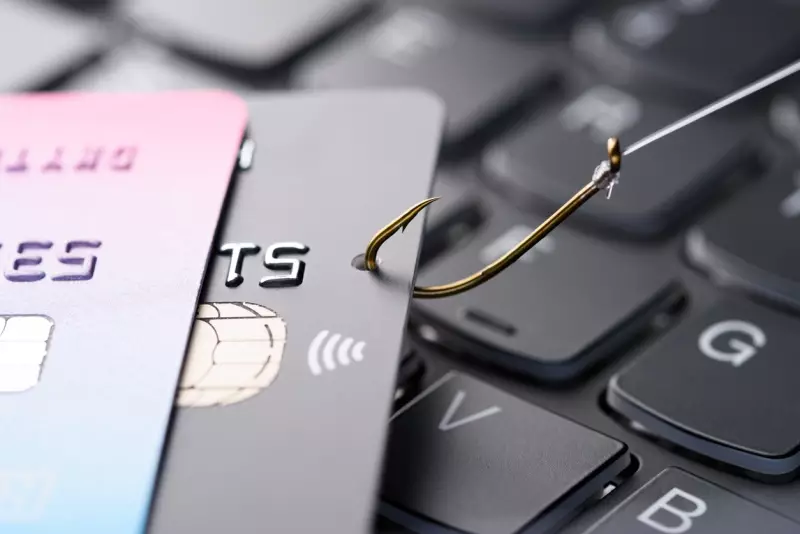Types Of Consumer Frauds and Ways To Avoid It
Table of Contents
- By Steven
- Published: Oct 02, 2023
- Last Updated: Oct 13, 2023

Global consumers have suffered many hardships in recent years: pandemics, historic inflation levels, and rising crime everywhere. The aging of society and astonishing technological advancements have made rampant consumer fraud easier than ever.
Records from the major news agencies have shown consumer fraud rising at unprecedented levels of 70% and more. According to the FTC, as many as 30 million consumers, or 13.3% of the population, have dealt with fraud in the last year.
Common Fraud Scams
The following is just a tiny piece of a huge problem. Schemes involving seniors, caretakers, and relatives are on the rise, and new innovative ways to fraud the senior population are being invented by the minute.
Payment Card Fraud
Credit card and debit card fraud is escalating unabated in any country that allows money for credit. Offering the public a piece of plastic to access their money is brilliant but a feeding trough for criminals. The FTC estimates nearly 10 million Americans have their identities stolen each year. Combine that with criminal networking associations around the globe using the dark web for fraudulent websites selling social security numbers, credit and debit card numbers, and any personal information.

Millions of debit cards and other cash cards can be purchased for pennies on the dollar at any number of Dark Web websites. Card numbers are skimmed with a skimming device from ATMs or cash ticket machines. Advanced technology skimmers operate at airports at 30 feet or more.
Interpol reports: “There are a range of crimes associated with payment cards and payment systems such as point-of-sale terminals and cash machines (ATMs). The prevalence of online payment has been a boon to criminals, opening up a host of new opportunities. Crimes range from actual physical attacks on ATMs, for example, using explosives, to sophisticated cyberfraud such as black-box attacks where an unauthorized device sends commands directly to the ATM cash dispenser.”
Email Fraud, Otherwise Known As Phishing
Phishing scams are some of the oldest schemes on the internet, originating in the 90s and skyrocketing as technology boomed. Email phishing was the most lucrative scam running in the early 90s because everyone trusted the internet.
The first phishing attacks happened in the 90s when a group of hackers posed as AOL employees and stole instant messaging and email accounts.
Google blocks around 100 million emails daily, with an estimate that nearly 48% of the emails sent in 2022 were spam. The global reach of prevalent email phishing is astonishing, with UK Businesses stating in 2022, 83% of all cyberattacks were email or instant messaging phishing attacks. The simplest part of email phishing is sending an unwitting employee the chance to win big money if only they clicked their link.
History’s most significant email attack started with a low-on-the-rung employee opening a random email attachment or clicking a link. One of the biggest email hacks in history almost sent Aaramco’s Oil, its 30,000 global employees, and its computer system back to the stone age. Starting with a computer tech opening an email.
Advanced Fee Scam
Advance Fee and Fee for fee-for-hire scams have been a stable and lucrative scheme with criminal organizations for a long time. The elderly and naïve are extremely susceptible to this scam. If a convincing Federal Agent says, it will take $500 to start an investigation, with more money needed down the line, a credible-sounding huckster can sell the scam.
The US Comptroller explains Advance Fee Scams fraud exists when the scam involves money for services or products. Law enforcement and government agents are the easiest to imitate and may ask for fees in exchange for services such as:
- The opportunity to get in on the ground floor of an exciting deal
- Needs assistance in getting money out of a country in political turmoil.
- Law enforcement needs the funds to catch thieves. (that’s ironic)
One of the most used scams is anything dealing with debt elimination. Advance Fee and Fee for Hire scams have skyrocketed recently due in part to pandemics and persistent inflation. Fake job and rental scams are also prevalent in densely populated areas. Scammers use the same techniques they use when scamming governmental services. Crooks impersonates personnel from popular job boards and promises employment through LinkedIn and other sites.
Identity Theft
There is no more insidious scam and victim debilitation crime than identity theft. Recovering from a stolen identity can take a few days or a lifetime of grief. Rampant identity theft is ruining the lives of millions of global citizens, and the information is bought and sold on the Dark Web websites.
The Department of Justice explains the crime this way: “Identity theft and identity fraud are terms used to refer to all types of crime in which someone wrongfully obtains and uses another person’s personal data in some way that involves fraud or deception, typically for economic gain.”
Entire industries are springing up to protect consumers and victims of online fraud. The sooner you realize your social security number has been compromised, the quicker you must contact law enforcement and any other agency to report the crime. Immediately cancel each debit and credit card associated with the SSN. Head to your bank and restart everything; depending on security, close checking and saving accounts and investments. Consider moving your money into one or two well-secured accounts and allocate it later.
Protect Yourself
Government websites have become valuable resources to deal with consumer fraud and its aftermath. The Federal Deposit Insurance Corporation (FDIC) outlines several ways to protect you and your family from the scammers and low-lifes who perpetrate the crimes. Cyber-security has become a focal point for consumers, governments, and law enforcement to concentrate their efforts.
- Never open an email from a stranger
- Be cautious of new links and websites
- Secure your personal information
- Never disclose an SSN or card number, Never!!
- Keep your operating system and preventive software up to date
- Use strong passwords!!!
Final Word
It is imperative for those who may be attacked to understand the ways online groups can harm their finances. It is mandatory for relatives and friends of susceptible people and elderly citizens in their lives to be cognizant of their frailties and do what is necessary to protect them.
The Grandparent Scam involves calls or emails from relatives in dire need and asking for money, preying on the emotions, and asking them to help immediately. The Attorney General of Texas gives consumers several examples of how a consumer fraud case may start. Emergency, home repair, advance fee, and Government imposter scams are skyrocketing around the globe.
Fraud against the elderly is a heartless crime against people susceptible to being easy victims. Trusted individuals, relatives, caregivers are all guilty of committing elderly fraud, because of how easy it is to scam the elderly out of their homes and savings. The power of attorney document and reverse mortgage scams can take every dime an elderly person owns, leaving them with nothing.
The world has changed from a few short decades ago and continues moving at breakneck speed. Convince yourself to “Never Be A Victim and protect those around you.” In the online world, assume everything is a scam rather than a trusted friend. Protect yourself and your finances.
















